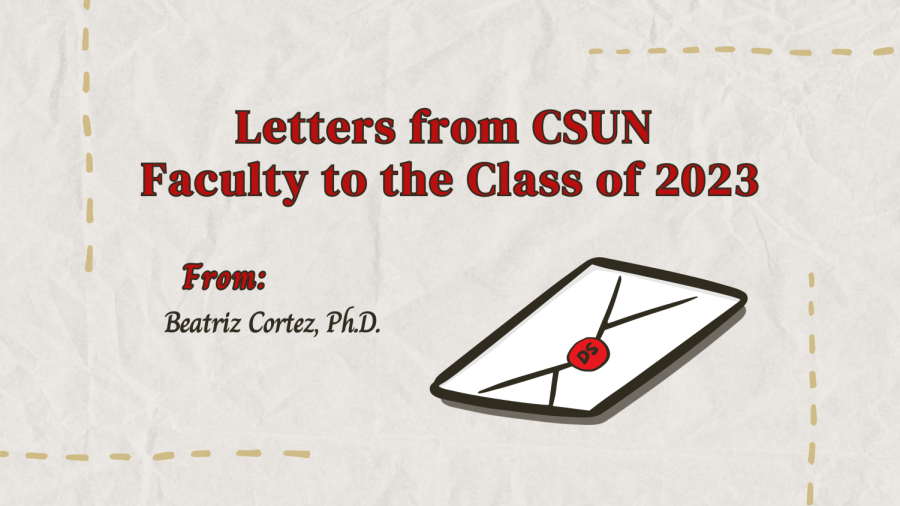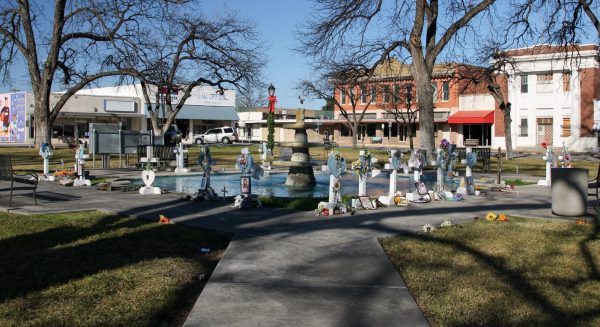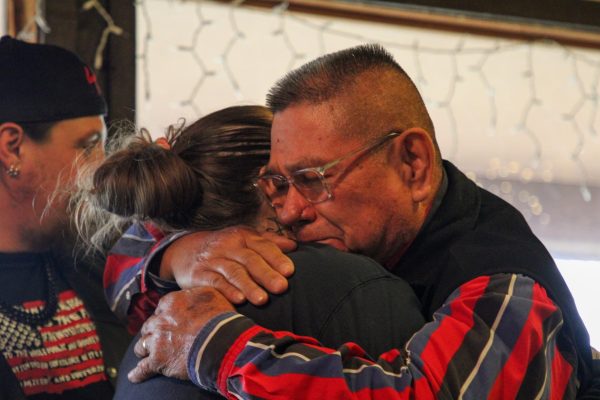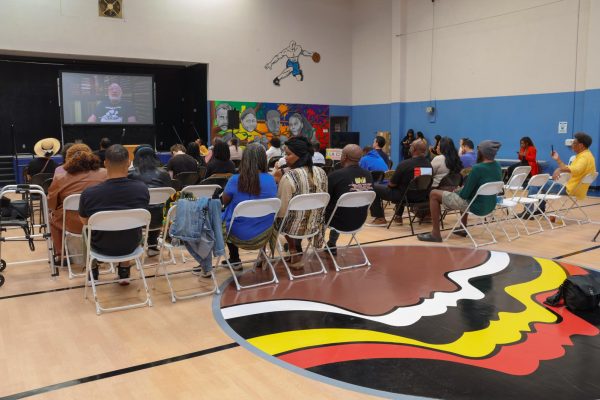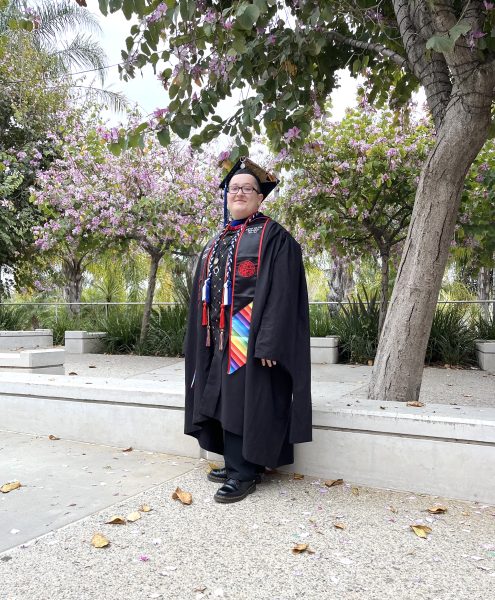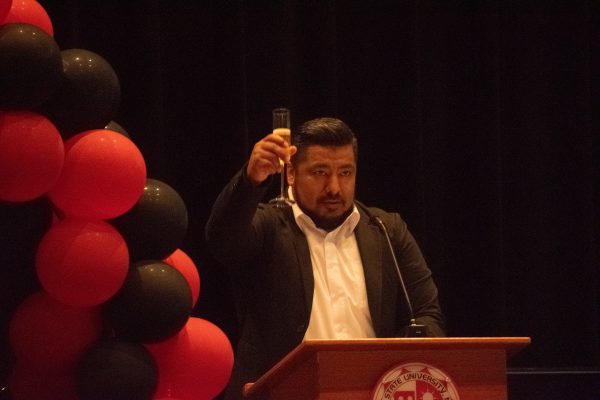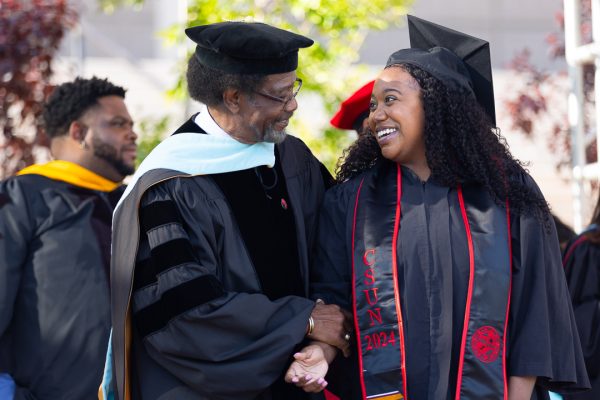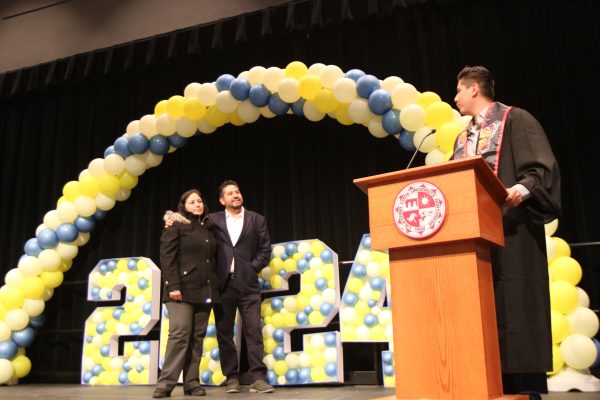Graduation letters: Beatriz Cortez
May 10, 2023
Beatriz Cortez, Ph.D., is the chair of the Central American and transborder studies department in the college of humanities. You can learn more about her here.
I remember it as if it was yesterday: You were 29 years old when you arrived at CSUN. You were so excited to be here for the inauguration of the first program in Central American studies in the nation! It was August 2000. Identity was central to the program that was inaugurated and you already questioned identities. You believed, like I do today, that identities are malleable, that they are in the making, that they transform themselves, that the future is open.
Being a nomad regarding not only space but also time came later as a result of these ideas. It was fortunate that your colleague, Douglas Carranza, also believed in nomadic and rhizomatic identities, and so together, you set to rewrite the curricula for the five existing courses and then to write many more. Was it 29 new courses that you wrote together? Maybe. But while doing this you invented something completely different: a new discipline that was emerging, a new field of studies.
I wanted the program not to be centered around identities, because identities are like nations, in the end you always end up having to defend the territory. Instead, you fought the “invasive species” anti-gentrification language that was applied equally to immigrants and to gentrifiers. You centered your efforts on the Central American experience, on communal experiences happening transnationally, and you privileged the notion that Central America is not a Hispanic region and that Central American studies is not a Latinx field of studies because it is not U.S.-centered, it is a transnational field of studies that reflects a transnational experience.
Central America is multicultural, a region inhabited by Indigenous communities, Black communities and Hispanic communities, all sharing space and resources. The nation privileges Hispanic and Eurocentric cultures, but we don’t, we privilege the people of Central America and their multicultural experiences. While others fought you, trying to force you into U.S.-centered logic of Central American Americans or other such identities, and people scolded you for your critique of Latino Studies as a complicated space for Indigenous peoples, you stuck to your beliefs.
You also heard the perspectives of Indigenous thinkers, artists, scholars who refused to be labeled as Hispanic, Latino, or as national subjects, who critiqued the imposed identity of “ethnic” beings. Even as you embraced the space of ethnic studies, and fought for its visibility, you upheld this critique as crucial for the future. I want to thank you for all the gifts that your labor has given me. Even as you critiqued the concept of “founding members,” because it sounds like the national “founding fathers” and because it is a concept stuck in the past and removed from the future, you helped establish a new space for many others. This is what I would like to tell you: The important thing is not to have a label, a territory, a credit. It is to open up spaces to empower many others, and to let them all flourish on their own terms, in their own fields, for their own reasons.
To the Class of 2023, congratulations! We are all excited to see what you will build!
In solidarity and with futures,
Beatriz
